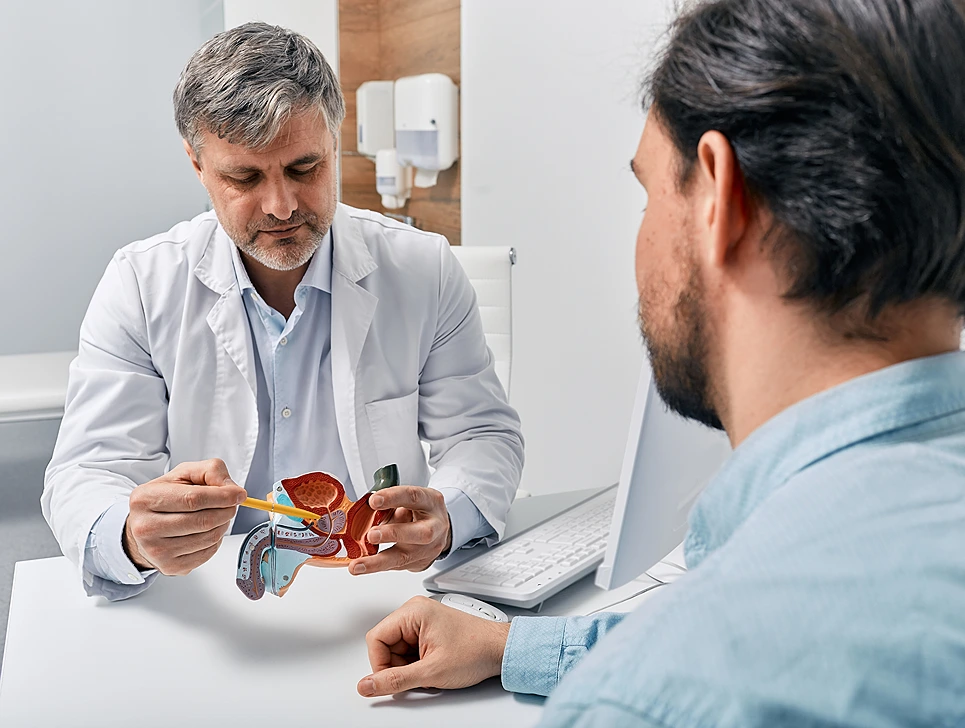Weighing Potential Benefits and Risks to Make Informed Treatment Decisions
Testosterone therapy has become a popular treatment option for men looking to boost lagging energy levels, improve sexual function, build muscle mass and address other symptoms related to low testosterone levels. However, concerns have been raised about potential links between testosterone replacement and increased cancer risk.
At Physician’s Rejuvenation Centers, we understand the importance of making informed decisions about your health. Our expert medical staff stays up-to-date on the latest research regarding testosterone therapy so we can provide accurate information and effective treatment tailored to your individual needs.
In this in-depth article, we’ll explore what the science says regarding concerns about testosterone therapy and cancer. Read on for a comprehensive look at the facts around this complex issue.
What is Testosterone Therapy?

Testosterone therapy, also known as testosterone replacement therapy or TRT, involves supplements to raise testosterone levels in men diagnosed with low testosterone, or hypogonadism.
The most common reasons doctors prescribe testosterone therapy include:
- Increasing low libido
- Improving sexual function
- Addressing erectile dysfunction
- Building muscle mass
- Increasing bone density
- Boosting energy and mood
Testosterone can be administered as gels, patches, injections or pills. This introduces supplementary testosterone into the bloodstream to return levels to a normal range.
Take control of your health and vitality with personalized testosterone therapy tailored to your needs at Physician’s Rejuvenation Centers
Does Testosterone Therapy Increase Prostate Cancer Risk?
One of the biggest concerns around testosterone therapy is that raising testosterone levels could increase the risk of prostate cancer.
The prostate requires testosterone to function properly. However, prostate cancer is also considered a hormone-driven cancer. Some theories have proposed that higher testosterone provides “fuel” for prostate cancer growth.
So what does the evidence actually show regarding testosterone replacement therapy and prostate cancer risk?
Recent studies demonstrate no definitive causal link between testosterone therapy and increased prostate cancer development. However, there are some important nuances to consider.
A 2018 large study followed over 140,000 men with low testosterone who received testosterone therapy. Researchers found no increased risk of prostate cancer compared to men not receiving treatment.
However, other research hints at potential increased risks under certain conditions:
| Condition | Risk Factors and Considerations |
| Men over 65 | Some research indicates testosterone therapy could pose higher prostate cancer risks for older men, particularly those with pre-existing prostate cancer risk factors. Doctors may exercise more caution prescribing testosterone therapy to older patients. |
| Patients with prior prostate cancer | Men with a history of prostate cancer are generally advised against testosterone therapy, which may stimulate cancer cell growth. |
| Method of administration | Rapid spikes in testosterone, such as through some injectable forms, may encourage prostate cancer progression more than slower-release methods like gels or patches, according to some studies. |
| Duration of treatment | Testosterone therapy longer than one year is seen with greater incidence of prostate cancer detection. However, detection does not always equate to causation. |
While no definitive link exists between testosterone replacement and prostate cancer development, men are still advised to take precautions:
- Carefully weigh benefits against potential risks with your physician.
- Undergo regular prostate cancer screening while on therapy.
- Closely monitor testosterone levels to keep them within prescribed ranges.
- Use alternative delivery methods to injections if possible.
Does Testosterone Therapy Increase Other Cancer Risks?

While most concerns focus on prostate cancer, researchers have also looked into whether testosterone therapy could impact risk for other cancer types. So far, evidence does not strongly indicate heightened risks.
Some key findings on testosterone therapy and other cancers:
Breast cancer
Normal testosterone levels do not increase risk of breast cancer. There is no evidence that testosterone therapy would intrinsically cause breast cancer. However, men with high baseline risk may require enhanced screening.
Lung cancer
A cross-sectional population study has linked higher testosterone levels to better lung function in men. However, the role of testosterone in lung function among women is still unclear. More evidence is needed regarding the impact of testosterone on lung function decline over time in both sexes.
Ovarian, endometrial and uterine cancers
Testosterone therapy is not used in biological females. Research does not support theories that increased androgen levels raise risks of female reproductive system cancers.
While more research is still needed, the overall data so far does not point to testosterone therapy substantially increasing risks across other cancer types beyond the prostate. As always, discuss your specific risk factors with your healthcare provider.
Contact us today to explore how testosterone therapy can help enhance your quality of life while mitigating potential cancer risks
Monitoring Cancer Risks While on Testosterone Therapy
If you and your doctor decide testosterone replacement therapy is right for you, take these steps to minimize potential cancer risks:
- Get screened for prostate cancer before starting therapy. Your physician may recommend regular screening at least annually while on treatment given prostate cancer concerns.
- Immediately report any symptoms like difficult urination, blood in urine or semen, etc.
- Choose delivery methods that maintain steady testosterone levels, like gels or patches. Avoid rapid spikes from injectable forms to be safe.
- Have your testosterone levels measured via blood test three to six months after starting therapy, then annually. Ensuring you stay within prescribed ranges optimizes results and reduces side effect risks.
- Discuss when to discontinue therapy with your doctor. Long-term testosterone use for more than 2-3 years may increase risks and necessitate periodic cycling off treatment.
- Report any side effects and have cancer screening tests done as recommended by your physician. Monitoring and managing side effects is key.
Testosterone Therapy and Cancer: Key Takeaways

Testosterone therapy has proven benefits for many men with low testosterone. But it is not always suitable for everyone. Carefully weighing benefits against potential risks and having open discussions with your doctor is key to determining if testosterone therapy is appropriate for your situation.
The experts at Physician’s Rejuvenation Centers stay up-to-date on the latest testosterone therapy research and will work with you to create a treatment plan tailored to your unique needs and health profile.
Contact us today to schedule a consultation and discuss whether testosterone therapy is right for you. You may also get in touch via phone – call us at (561) 783-5153 today!
FAQs
What tests do I need before beginning testosterone therapy?
Our specialists may order lab tests to check your total and free testosterone levels, estradiol, complete blood count, prostate-specific antigen (PSA), and other hormone and health markers. They will also perform a physical exam and evaluate your symptoms to determine if you are a candidate for testosterone therapy.
How do I get prescribed testosterone replacement?
Make an appointment with our hormone specialists to be evaluated for testosterone deficiency. We will review your lab results, medical history, and symptoms, and perform an exam to determine if testosterone therapy is appropriate for you based on standard diagnostic criteria. If so, we will provide a prescription for FDA-approved testosterone administration.
Where can I get my testosterone prescription filled?
Testosterone medications like gels, injections, and patches are available at many retail, mail-order, and specialty pharmacies nationwide. Our doctor can send your prescription to your preferred pharmacy or advise you on reputable options that they work with to fill testosterone therapy prescriptions.
What dose of testosterone therapy will I start at?
Your starting testosterone dose and administration method will depend on the severity of your deficiency, your age, treatment goals, and other factors. We will prescribe an appropriate dose designed to restore normal testosterone levels in your bloodstream. This may range from 50mg to 200mg based on the delivery method.
Should I make any lifestyle changes when starting testosterone?
Adopting healthy lifestyle habits can complement testosterone therapy. We may advise exercise, weight loss, proper sleep, smoking cessation, limiting alcohol, and improved diet to get the most benefits from treatment.

